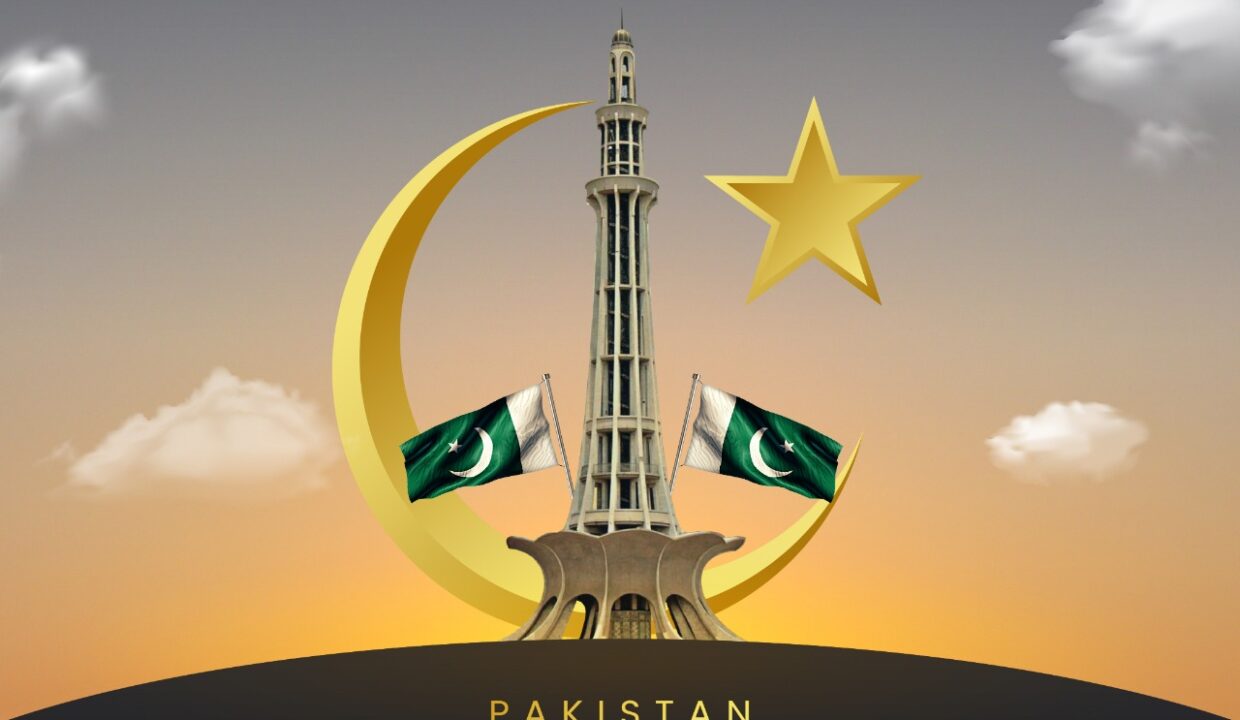

The Lahore Resolution (Urdu: قرارداد لاہور, Qarardad-e-Lahore;also called Pakistan resolution or declaration of independence of Pakistan, was written and prepared by Muhammad Zafarullah Khan[1][2][3] and was presented by A. K. Fazlul Huq, the Prime Minister of Bengal, was a formal political statement adopted by the All-India Muslim League on the occasion of its three-day general session in Lahore on 22–24 March 1940. The resolution called for independent states as seen by the statement:
That geographically contiguous units are demarcated regions which should be constituted, with such territorial readjustments as may be necessary that the areas in which the Muslims are numerically in a majority as in the North Western and Eastern Zones of (British) India should be grouped to constitute ‘independent states’ in which the constituent units should be autonomous and sovereign.
Although the name “Pakistan” had been proposed by Choudhary Rahmat Ali in his Pakistan Declaration,[4] it was not until after the resolution that it began to be widely used.
Muhammad Ali Jinnah‘s address to the Lahore conference was, according to Stanley Wolpert, the moment when Jinnah, a former proponent of Hindu-Muslim unity, irrevocably transformed himself into the leader of the fight for an independent Pakistan.
Historical context[edit]
Until the mid-1930s the Muslim leaders were trying to ensure maximum political safeguards for Muslims within the framework of federation of India in terms of seeking maximum autonomy for Muslim majority provinces. They got some safeguards through a system of separate electorate on communal basis in the Government of India Act, 1935. As a result of electionsheld under this Act, Indian National Congress formed government in six out of eight provinces. During Congress rule from 1937 to 39, its “High Command whose iron control over its own provinces clearly hinted at what lay ahead for the Muslim majority provinces once it came to dominate the centre. Much of the League‘s propaganda at this stage was directed against the Congress ministries and their alleged attacks on Muslim culture; the heightened activity of Hindu Mahasabha, the hoisting of Congress tricolor, the singing of Bande Mataram, the Vidya Mandir scheme in the Central Provinces and theWardha scheme of education, all were interpreted as proof of ‘Congress atrocities’. So, the Congress was clearly incapable of representing Muslim interests, yet it was trying to annihilate every other party.”[6]
Therefore, by 1938–39, the idea of separation was strongly gaining ground. The Sindh Provincial Muslim League Conference held its first session in Karachi in October 1938, adopted a resolution which recommended to the All India Muslim League to devise a scheme of constitution under which Muslims may attain full independence. The premier of the Bengal provinces, A. K. Fazal-ul-Haque, who was not in the All India Muslim League, was quite convinced in favor of separation. The idea was more vividly expressed by M. A. Jinnah in an article in the London weekly Time & Tide on 9 March 1940.[7] Jinnah wrote:
Democratic systems based on the concept of homogeneous nation such as England are very definitely not applicable to heterogeneous countries such as India, and this simple fact is the root cause of all of India’s constitutional ills……If, therefore, it is accepted that there is in India a major and a minor nation, it follows that aparliamentary system based on the majority principle must inevitably mean the rule of major nation. Experience has proved that, whatever the economic and political programme of any political Party, the Hindu, as a general rule, will vote for his caste-fellow, the Muslim for his coreligionist.
About the Congress-led provincial governments, he wrote:
An India-wide attack on the Muslims was launched. In the five Muslim provinces every attempt was made to defeat the Muslim-led-coalition Ministries,…In the six Hindu provinces a “Kulturkampf” was inaugurated. Attempts were made to have Bande Mataram, the Congress Party song, recognized as the national anthem, the Party flag, and the real national language, Urdu, supplanted by Hindi. Everywhere oppression commenced and complaints poured in such force…that the Muslims, despairing of the Viceroy and Governors ever taking action to protect them, have already been forced to ask for a Royal Commission to investigate their grievances.
